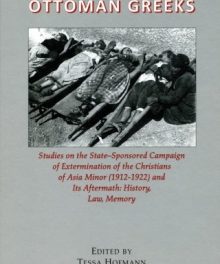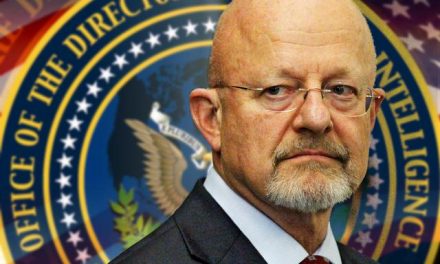BY SONER CAGAPTAY, OPINION CONTRIBUTOR-The HILL
In the elections last Sunday that won Turkish President Recep Tayyip Erdogan a second term, the country’s citizens cast two votes — one for a president and the other for a parliamentary representative. More accurately, Erdogan could not have won if not for the far-right Nationalist Movement Party (MHP), which has emerged as the “kingmaker” of Turkish politics with its support of Erdogan.
A hardline Turkish nationalist faction, the MHP allied with Erdogan’s Justice and Development Party (AKP) just before the elections, endowing Erdogan with dual electoral victories.
The MHP added its 11.7 percent of parliamentary votes to the AKP’s tally of 42.6 percent, helping Erdogan build a majority coalition in the Turkish legislature. More importantly, in the presidential race the MHP did not field a candidate. Instead, the party’s leader, Devlet Bahceli, asked his supporters to vote for Erdogan, helping him win the presidential vote with 52.6 percent support.
As a result, Erdogan is indebted to Bahceli and will share some power with him, most likely by appointing Bahceli as one of his vice presidents. Erdogan may also assign some ministerial portfolios to the MHP. In return, Bahceli would support Erdogan in the parliament, helping him to pass key legislation such as the budget.
Taking into account historic trends, the AKP-MHP alliance does not bode well for Turkey’s stability. Without exception, all Turkish governments supported by the MHP have collapsed in grave crises, including civil war-like fighting on the streets in 1977 and 1979, and Turkey’s worst economic crisis in 2001-2002. In 1977 and 1979, the MHP took part in the fighting through its militia, known as “Grey Wolves,” and in 2002, Bahceli betrayed his coalition government partners at the time, calling for early elections, which brought Erdogan’s AKP to power.
It is not an accident that MHP governments result in crises in Turkey. The MHP, rooted in Turkey’s Cold War history, has a racially charged, divisive, militant and authoritarian view of politics. In other words, it is the enfant terrible of Turkish politics.
In the 1960s, as Turkey witnessed the rise of working-class and leftist movements, ultra-nationalist and anti-communist groups began to physically intimidate leftist students, scholars, activists and journalists. One ultra-nationalist leader, Alparslan Turkes, promoted an anti-communist ideology based on the ethnic superiority of Turks over minorities through his Nationalist Action Party (MHP).
During the Cold War, the ultra-nationalists were a minor force at the ballot boxes, but the MHP became influential on the streets through the Grey Wolves. This armed group acted as shock troops in street battles against leftists that would virtually define Turkish politics during the 1970s.
At the end of the Cold War, and then after Turkes’ death in 1997, many in the MHP moved away from the party’s dark past, including Meral Aksener, who recently broke away from the MHP to set up her centrist IYI (Good) Party, which received 10 percent of the recent vote. However, a core group of MHP followers has stayed with Bahceli, helping make him and the party a major factor in Turkish politics.
The MHP’s influence will be most visible on the Kurdish issue. Unlike other Turkish political parties, the MHP often denies the existence of a Kurdish identity in Turkey. The MHP will demand a tougher line from Erdogan regarding Kurdish nationalism, such as ruling out a political solution and taking tougher military action against the Kurdistan Workers’ Party (PKK), a terrorist group that Turkey has been fighting for nearly four decades.
The MHP also will limit Erdogan’s space to maneuver as he tries to reach a modus vivendi with Washington, which has relied on the PKK-ally, People’s Protection Units (YPG), to fight the Islamic State in Syria.
Before the Turkish elections, Washington and Ankara had inked a deal that foresaw the withdrawal of the YPG from the Manbij salient in northwestern Syria, to the east of the Euphrates River where the YPG controls a swath of territory, dubbed Rojava. Erdogan seemed content for the moment to live with YPG control of Syria east of the Euphrates.
The MHP likely will force the Turkish leader to reconsider his pragmatic approach, limiting Erdogan’s options in maintaining his arrangement with Washington.
Domestically, the MHP, with its devotion to authoritarian ethos, will encourage Erdogan’s anti-democratic tilt. Criticized by the opposition during the election campaign for his authoritarianism, Erdogan promised to lift the state of emergency that was put in place after a 2016 failed coup. Bahceli, who opposed the lifting of the state of emergency on June 26, will encourage Erdogan to stick to authoritarianism in domestic politics.
The MHP’s foreign policy call sign is to rally for the cause of overseas Turks. In this regard, the historic bete noir of the party is Russia, which has dominated large Turkic communities. Bahceli also is likely to encourage a hardline policy towards Russia, even though Erdogan gets along with Russian President Vladimir Putin. However, Bahceli must be careful in pushing Erdogan, who has a penchant for undermining allies who push him too hard. A case in point is Fethullah Gulen, an erstwhile Erdogan ally who became an enemy when he tried to overpower Erdogan in Turkish politics, requesting in 2011 that Erdogan appoint one of his followers to head Turkey’s intelligence organization.
The two leaders ended up in a political struggle. Some analysts believethat officers who aligned with Gulen played a key role in the attempted coup against Erdogan. He not only defeated the coup plotters, but also arrested tens of thousands of Gulen supporters afterward.
If Bahceli were to push Erdogan too hard regarding Russia, the YPG, or any other difficult issue, the Turkish president would have no difficulty in demonizing and defeating the MHP. However, remembering that no Turkish government supported by the MHP has ever ended well, if the MHP went down, it would certainly try to take Turkey — and perhaps its president — down with it. Dealing with the MHP indeed will be Erdogan’s most tricky challenge.
Soner Cagaptay, a senior Beyer Family Fellow at The Washington Institute, where he directs the Turkish Research Program. He is the author of “The New Sultan: Erdogan and the Crisis of Modern Turkey.” He has taught courses at Yale, Princeton University, Georgetown University, and Smith College on the Middle East, Mediterranean and Eastern Europe.


















